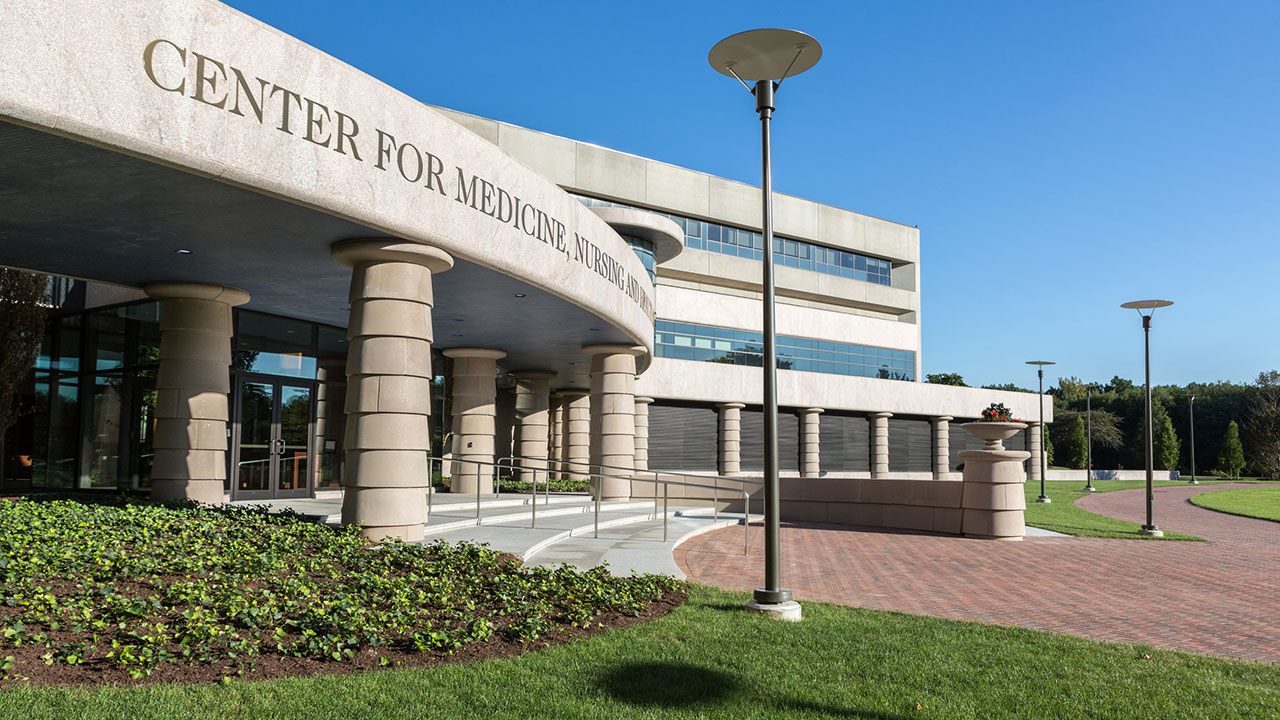The Frank H. Netter MD School of Medicine at Quinnipiac University will host its annual Rare Disease Day symposium from 9 a.m.-3 p.m. on Saturday, Feb. 27.
Rare Disease Day is a global event that serves to raise awareness of more than 7,000 identified rare diseases. Although each disease is rare, collectively they affect about 1-in-10 Americans. The symposium, under the direction of Quinnipiac faculty and students engaged in rare disease scholarship and advocacy, serves as an opportunity for patients, family members, and researchers to share their stories and promote education, awareness and advocacy. It is also an accredited continuing medical education (CME) activity for physicians.
“For medical students, this year’s Rare Disease Day truly shows us the power and future of medicine,” said Anoush Calikyan, a student organizer. “It is an important reminder that, as we progress in our field, we need to continue to advocate for and support the discovery of new therapies for those patients who need it most.”
This year’s virtual symposium will feature two keynote addresses. Dr. Leonard Kaczmarek, a professor of pharmacology and of cellular and molecular physiology at the Yale University School of Medicine, will deliver the 9 a.m. presentation about Malignant Migrating Partial Seizures in Infancy (MMPSI) titled, “Correcting Ion Channel Point Mutations That Cause Epilepsy, Intellectual Disability and Ataxia; What Happens When a Basic Scientist Talks to Patients?”
MMPSI is characterized by seizures that begin in the first six months of life accompanied by plateauing or regression of developmental milestones.
Dr. Miguel Sena-Esteves, associate professor of neurology at the University of Massachusetts Medical School, will deliver the second address, “Development of an AAV Gene Therapy for Tay-Sachs Diseases: From the Bench-to-Bedside Through the Valley of Desperation,” at 10 am.
Tay-Sachs disease and Sandhoff disease are inherited progressive neurodegenerative disorders caused by the abnormal accumulation of GM2-gangliosides in neurons. They are characterized by the onset of progressive muscle weakness and decreased attentiveness as well as the loss of developmental milestones that usually occur late in the first year of life. This is followed by the onset of seizures, and further cognitive and motor deterioration. Death usually occurs between ages 3 and 5.
Both speakers will talk about their groundbreaking work on the development of therapies that have not existed for either disorder. The remainder of the event will feature a rare disease patient and caretaker panel, oral presentations and a roundtable entitled, “PhRMA and the NIH: Taking the Lead in the Revolution in Drug Discovery and Rare Disease Therapeutics,” led by Dr. Emil D. Kakkis, president and CEO of Ultragenyx Pharmaceutical Inc., and Dr. Michael Collins, senior clinical investigator at the National Institutes of Health.
“Our theme this year is centered on the development of evidence-based diagnostics and bench-to-bedside therapeutic orphan drugs from inception to the clinic,” said Dr. Carolyn Macica, associate professor of medical sciences and faculty chair of the event. “There is hope at the frontline for these families as the pharmaceutical industry and the National Institutes of Health have created a space for the development of drugs with the potential for a life-changing impact on patients and their families.”
A number of pre-event activities are available on the symposium website. Activities include a virtual art exhibition portraying patients with rare diseases, personal patient portfolios and an interprofessional education seminar on February 19 in collaboration with the Center for Interprofessional Healthcare Education. Macica, Quinnipiac medical student Ron Helderman, Miriam Dimaio, assistant professor of medical sciences, and Maya Doyle, associate professor of social work, will lead the activities.
The Rare Disease Day symposium is free and open to the public, but registration is required. To register, click here. For more information, email rarediseaseday@quinnipiac.edu or call 203-582-8652.
